Requirements for traveling to Mexico by car: US guide
Heading to Mexico? Find out what documents you need when crossing the US-Mexico border by car.
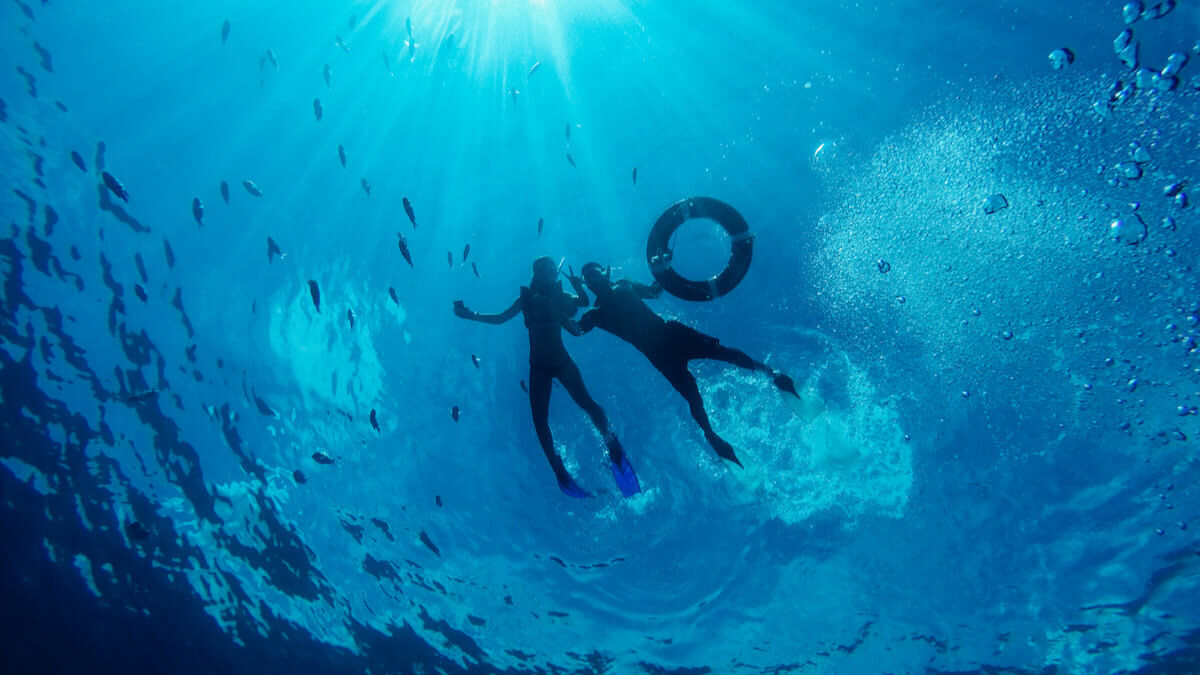
Mexico is a particularly popular destination for travelers from the US — but you may well be wondering: is it safe to travel to Mexico right now? This guide covers all you need to know about the safety and security considerations for a trip to Mexico — including Covid and pandemic related concerns, road safety, crime and more.
Use this as a starting point to plan your trip to Mexico — and you can be sure you’ll have a safe and enjoyable time. We’ll also touch briefly on how you can use a Wise Multi-currency Account to cut the costs of currency exchange when you travel to Mexico — and keep your money safe at the same time.
| 📑 Table of Contents |
|---|
It’s important to note right away that safety and security in Mexico can vary a lot depending on where in the country you’ll be visiting. The US State department has advice by region to help you assess the risks and get a live picture of the area you’re heading to.
We’ll also look at one common question — how safe is Mexico city? In just a moment. First, an overview.
| OVERVIEW¹ | |
|---|---|
| Overall risk | Medium |
| Transport & Taxi | High |
| Pickpocketing | High |
| Mugging | Medium |
| Scams | Medium |
| Natural disasters | Medium |
The US State Department uses a 4 point scale to rate the safety of overseas destinations. Level 1 ratings suggest travelers simply use normal precautions, while Level 4 ratings are a clear message to travelers not to go to that destination.
Different regions in Mexico are accorded a rating differently — and there are places in the country which fall into each of the 4 advisory levels.
Mexico City comes in with a Level 2 advisory — that means travelers should exercise increased caution when visiting, because of possible crime and kidnapping. That means a trip to Mexico City should be safe as long as you’re careful and take measures to protect yourself. There’s lots more ways to stay safe in Mexico City and other popular destinations, coming up in just a moment.
As we have already noted, safety in Mexico varies by location. Some areas have high levels of crime, including violent crimes, homicides, kidnappings and carjackings. Petty theft is also a problem in tourist destinations.
While this means you’ll need to think about where you visit in Mexico — and exercise caution when you’re out and about — it shouldn’t deter you from visiting once travel starts to open up more fully.
The global pandemic may have stopped most travel plans for now — we’ll cover how safe Mexico is from a Covid perspective later. But once tourism levels increase more, a trip to Mexico could be a thrilling adventure, or a relaxing beachside break, depending on your personal preferences.
Let’s look at some general safety tips for travel in Mexico:
|
|---|
🔐 Learn more about how
Wise keeps your money safe
Tourists can more easily be caught off guard than locals — which does mean that there are scams in Mexico which target unsuspecting visitors. Many of these involve fake tour agencies or tickets — avoid them by using a reputable agent you’re chosen based on good customer feedback. Street vendors and touts can also be persistent and annoying — if someone says they know you they may well just have noticed your hotel wristband and be pretending to recognise you from the resort.
As with many places, taxi scams are also fairly widespread, with rigged metres meaning you pay far more than you should. Choose a pre-booked taxi or use a carshare app like Uber.
Credit and bank card fraud can be a problem in Mexico — and tourists may be victims. Take sensible precautions like keeping your card in view at all times when paying, and open a Wise Multi-currency Account to keep your travel money separate from your regular bank account.
With a Wise international account and card you can top up in dollars and then spend in MXN with the real mid-market exchange rate. There’s no need to carry lots of cash, and you can simply manage your card from your phone to freeze and unfreeze it whenever you need to.
With instant transaction notifications you’ll be able to keep an eye on your money at all times, and top up your account whenever you want to. Save money on currency conversion — and keep your travel money safe — with Wise.
If you’re traveling to Mexico — alone or in a group — you’ll need to choose your destination carefully and exercise caution when you’re out and about. By picking one of the safer places to visit, and keeping your wits about you your solo trip to Mexico should work out just fine.
While safety in Mexico varies from place to place, women may be more vulnerable to certain crimes including rape, sexual assault and being handed drugged drinks. Crimes have taken place in resort areas, so you’ll need to be cautious if you’re a female planning a solo trip to Mexico.
At the time of writing, Yucatán State and Campeche State both have the lowest level of government travel advisory in place — meaning they’re considered among the safest destinations available. A broader range of states fall into the second level of travel advisory, which means travel there is relatively safe but you’ll need to be vigilant. Here are some ideas to consider:
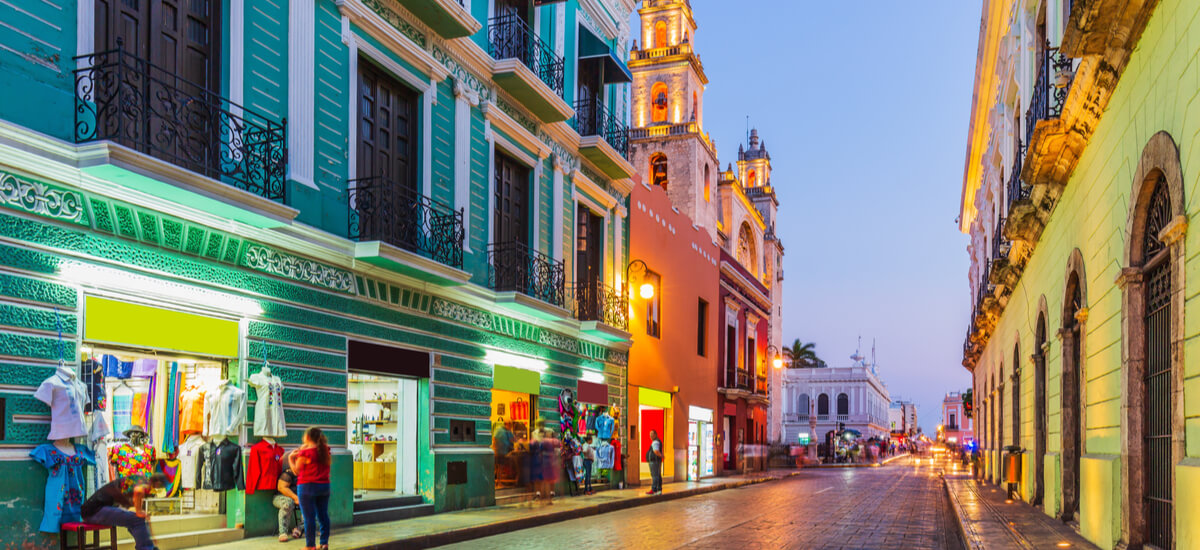
Merida is the largest city in Yucatán State, and a great base for day trips in the area. It’s considered the safest city in Mexico — and one of the safest in North America — and has both Mayan and Colonial culture and history to enjoy.
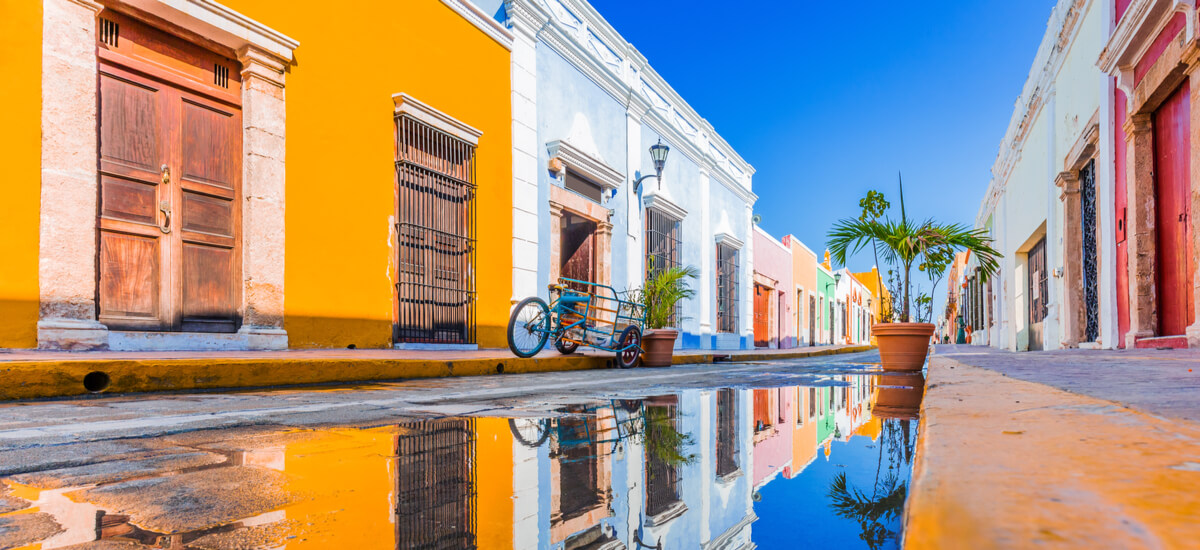
The walled city of Campeche is a UNESCO world heritage site — and another very safe bet for a visit to the Yucatán Peninsula. You’ll be able to see cobblestone streets and stately old buildings, as well as enjoying quiet beaches.
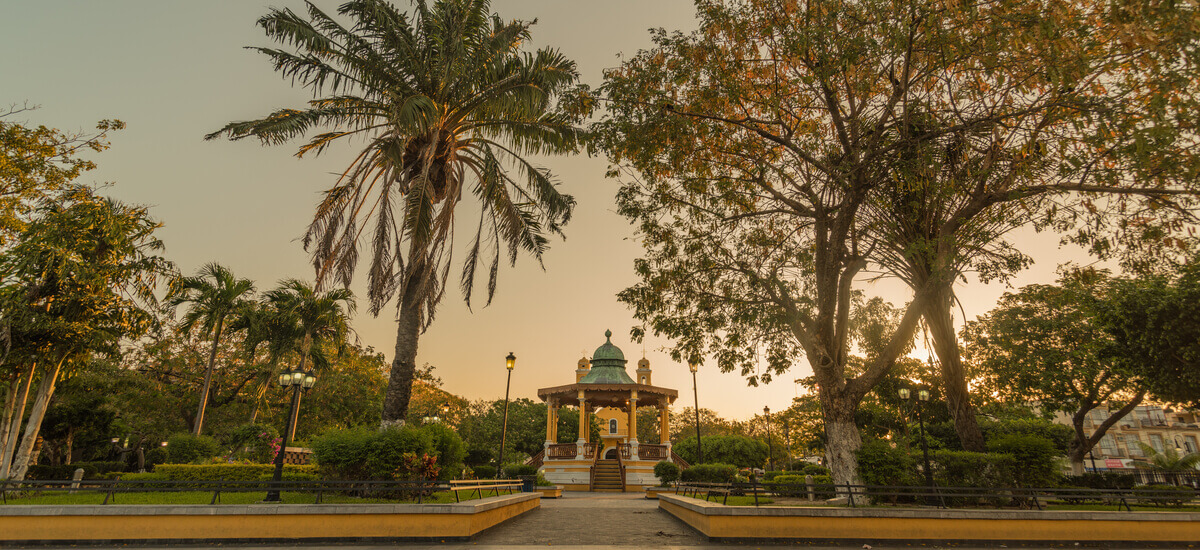
Ciudad del Carmen is a smaller city — but becoming a more popular tourist destination. Check out colonial buildings and some lovely beaches, and you might even spot dolphins and turtles swimming in the lagoon.
At the time of writing 5 regions of Mexico get the US State Department’s highest level of travel advisory — meaning you should not travel there:
- Colima state
- Guerrero state
- Michoacan state
- Sinaloa state
- Tamaulipas state
Crime and kidnappings are common in these areas — best avoided. There are also a fairly high number of states on the level 3 travel advisory which means you should reconsider travel to the region.
Typically crime and kidnappings are the reasons for these warnings, too. As the advice will be updated frequently as the picture on the ground changes you’ll want to check out the State Department Mexico travel advisories page before you book.
Knowing in advance what to do if you need support when traveling is just good practise. Here’s what you need to bear in mind when planning your trip to Mexico.
The emergency number in Mexico is 911. Healthcare facilities in cities are excellent — but it’s worth knowing that rural areas tend to have more basic facilities, and slower emergency service response times.
US Embassy address:
Paseo de la Reforma, 305
Col. Cuauhtémoc, Mexico, D.F.
06500
US Embassy telephone:
5080-2000 (24/7 switchboard operator)
You can also enrol in the US government’s Smart Traveler program to get updates and safety information when you travel².
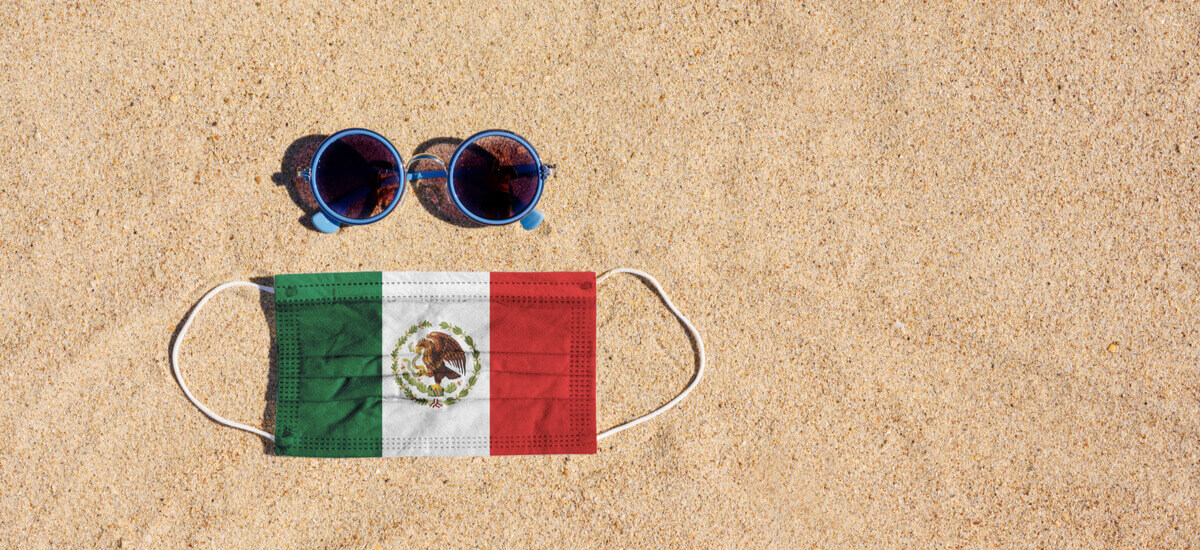
You might be wondering whether it is safe to travel to Mexico right now because of Covid. At the time of writing, the US government gives Mexico a level 3 travel advisory because of Covid — this means citizens should reconsider traveling to Mexico at this time.
However, the picture is changing fairly rapidly — so you’ll need to keep an eye on progress before you make your reservations. Get up to date advice and information from the US Embassy in Mexico, and the Mexico country page on the State Department website.
The US Embassy in Mexico has a specific covid information page for US citizens in or traveling to Mexico³. At the moment, nearly 50% of Mexican citizens have received their Covid vaccinations⁴. US travelers headed to Mexico do not need to provide a negative Covid test — but you’ll need one to return to the US after your trip.
Let’s move on to some common questions about travel safety in Mexico. There’s lots of helpful advice and up to date information on government backed resources such as the Overseas Security Advisory Council (OSAC) website, too⁵.
Getting around in Mexico can be a challenge, depending on where you’re headed to.
| 💡 Here’s what you’ll want to know |
|---|
|
Whether or not driving is safe in Mexico will depend a lot on where you are going. Many toll roads and roads in urban centres are of a high quality, but marginalized areas may not have the best roads which can cause accidents and delays. Drivers in Mexico may not follow basic road rules, and some vehicles are not properly maintained.
There are also occasional carjackings and kidnappings — OSAC advises drivers to travel intercity in daylight hours only.
Hitchhiking is an inherently risky way of getting around — it’s best avoided in Mexico.
The tap water in Mexico is of variable quality. It’s safest to stick to bottled water.
Choose what and where you eat in Mexico using common sense. In general the food is perfectly safe, and delicious — but you’ll obviously want to take care to pick popular, busy venues and make sure everything is cooked thoroughly, just like at home.
The Centres for Disease Control and Prevention (CDC) website recommends a range of vaccinations and precautions when traveling to Mexico⁶. However, exactly what you’ll choose will depend on where specifically you are headed and what activities you’ll take part in.
| As well as all standard routine vaccinations, travel vaccinations and advice may be required for |
|---|
|
Mexico is not experiencing a Zika outbreak at the time of writing. The best place to get up to date information and advice about Zike is the Centres for Disease Control and Prevention website⁷. Here you can see current and past Zika statistics to build a picture for your destination.
| Tip: avoid mosquito bites where possible — they’re irritating at best, and can be dangerous. Take sensible precautions like using a good quality mosquito repellant, wearing long sleeved clothes, and using a mosquito net at night. |
|---|
Using Airbnb in Mexico is safe as long as you exercise common sense. Make sure the area you’re staying is safe, and pick a well rated host to make it more likely you’ll get great service.
The 2020 OSAC report noted that acceptance and openness to the LGBTQ+ community was greater in urban centres, with more conservative attitudes in rural parts of the country. While public attitudes are gradually becoming more accepting, there were reports of discrimination based on sexual orientation and personal identity, which can escalate into aggression. Overall, OSAC advises that travelers exercise caution when identifying themselves as part of the LGBTQ+ community in public in Mexico.
Mexico offers culture, nature, history and wonderful food. Once the world starts moving freely again, Mexico will be a dream destination for many of us. Use this as a guide to start planning your trip and don’t forget to open a Wise Multi-currency Account to help cut the costs of currency exchange and keep your travel money safe.
Sources:
Sources checked on 11.11.2021
*Please see terms of use and product availability for your region or visit Wise fees and pricing for the most up to date pricing and fee information.
This publication is provided for general information purposes and does not constitute legal, tax or other professional advice from Wise Payments Limited or its subsidiaries and its affiliates, and it is not intended as a substitute for obtaining advice from a financial advisor or any other professional.
We make no representations, warranties or guarantees, whether expressed or implied, that the content in the publication is accurate, complete or up to date.

Heading to Mexico? Find out what documents you need when crossing the US-Mexico border by car.

Heading to Mexico with your furry friend? Find out what documents you need when traveling with a dog.

In this article, discover the ideal SIM card for Mexico. Explore options and tips for seamless communication during your stay.
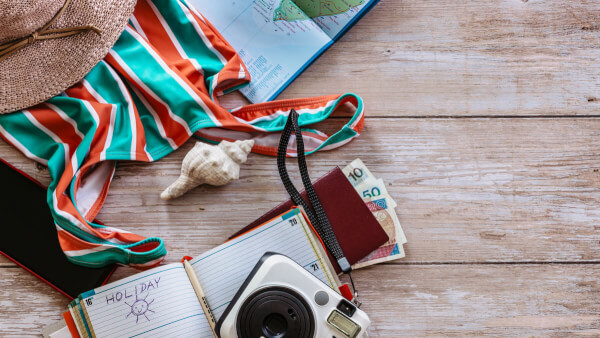
In this article, access the Mexico packing list you need. Discover essential items for a seamless and enjoyable journey to this vibrant destination.
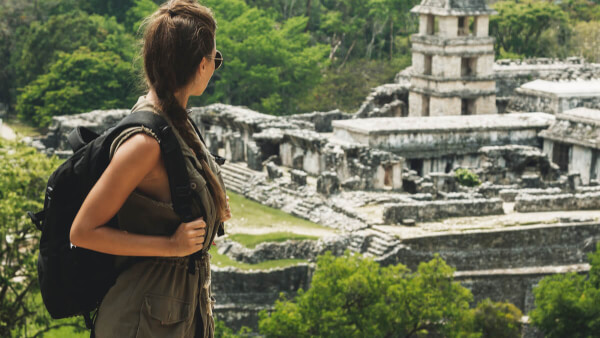
In this article, explore the enchanting array of famous landmarks in Mexico. From ancient wonders to modern marvels, uncover the essence of Mexico's beauty.

Can I use my debit card in Mexico? Tips for hassle-free transactions, fees, security, and merchant acceptance. Plan your financial convenience abroad.